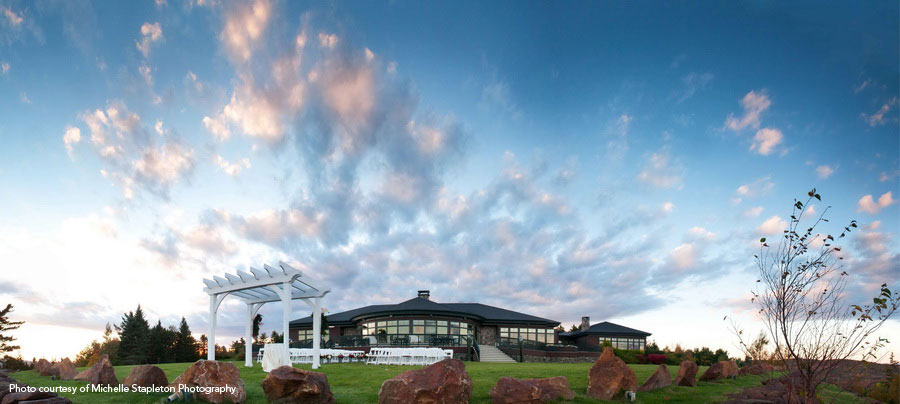Fall Conference 2016
Collecting Meaningful Evidence to Guide STEM Education Improvement
Maine STEM Partnership Fall Summit 2016
Point Lookout, Northport
November 18 & 19
Goals of the conference:
- Bring together members of our PreK-16+ communities, including the MainePSP and MaineESP, as well as new community members, for this first gathering of the Maine STEM Partnership at the RiSE Center.
- Learn about the breadth and depth of STEM education improvement work that our community is doing.
- Celebrate the successes and learn from our work as a community as we make plans and discuss priorities for the coming year.
- Provide opportunities for community members to share and learn formative assessment skills and strategies.
- Develop evidence-guided plans for improved preparation and support for science and mathematics teachers.
- Learn about national and local research and evidence-based evaluations to improve teaching and learning outcomes in STEM disciplines.
- Share strategies across content areas and grade levels to guide further improvements in STEM education for all of our students PreK-16+.
Conference invitees – Maine STEM Partnership members, partner-school administrators, University of Maine faculty and staff, and special guests – will experience a mix of short presentations, panel discussions, breakout groups, an “unconference” and networking opportunities.
THE SUMMIT IS FREE FOR INVITED PARTICIPANTS. All meals and single-occupancy lodging will be provided (for conference participants only) at the Point Lookout Resort and Conference Center. Teachers will also receive stipends for non-school day hours. This Summit is made possible through grants from the National Science Foundation. The Summit is hosted by the Maine STEM Partnership at the RiSE Center.
Agenda Overview:
The annual Maine Center for Research in STEM Education (RiSE Center) Partnership Summit will be held at Point Lookout Resort in Northport, Maine on November 18-19, 2016. The focus of this year’s summit is “Collecting Meaningful Evidence to Guide STEM Education Improvement,” with three overarching themes: Formative Assessment, Pre-Service Teachers, and Data Gathering & Analysis.
The Summit will begin on Friday, November 18 with check-in at 4 pm followed by a welcome dinner and keynote addresses from 5-8 pm.
The Summit will continue on Saturday November 19 with the following tentative schedule:
- 7:30 am: Breakfast
- 8:30 am: Opening whole-group session
- 9:30-12:00 pm: Three break-out sessions
- 12:00-1:00 pm: Lunch provided
- 1:00-2:00 pm: Open conference (topics and group discussions)
- 2:30-3:00 pm: Whole-group wrap-up and summit closing
Breakout Sessions:
Below is a list of the break-out session presentations and talks:
(Listed alphabetically by description title)
- Evidence to Fit the Function: Improving, Proving and Learning – Mark St. John
- Findings from the Maine Elementary Sciences Partnership and Implications for Science Teaching and Learning in Maine – Laura Millay & Bill Zoellick
- Formative Assessment in an Active Learning and Large Enrollment Undergraduate Pre-calculus Course – Todd Zoroya
- Impacts of Productive Classroom Discussions on Student Argumentation Skills – Marina Van der Eb
- Key areas for new teacher support: teacher community and content knowledge needed for teaching– Nicole Gillespie
- Making Science Relevant for Students – Marina Van der Eb
- New Methodologies for Investigating the Relationships among Intuition, Reasoning, and Conceptual Understanding, and How They Might Help in the Classroom – Billy Ferm & Caleb Speirs
- Reaching Struggling Introductory Biology Students with a Targeted Peer Tutoring Program – Farahad Dastoor
- Using Formative Assessment in the Classroom – Katie Wright
- Using Observation-Based Data to Investigate STEM Instruction: Focused on Clicker Implementation – Justin Lewin
- Want to Improve Your Teaching of Chemistry? Try Analogical Reasoning! – Mitchell Bruce
- WRITEscience Strategy Demonstrations – Erika Allison
- Why Data Literacy? – Molly Schauffler
- Why Did They Think That Was the Answer? Using and Developing Mathematical Knowledge for Teaching by Examining Students’ Written Work – Natasha Speer
- 3D Printing in the Classroom – Travis Hall

